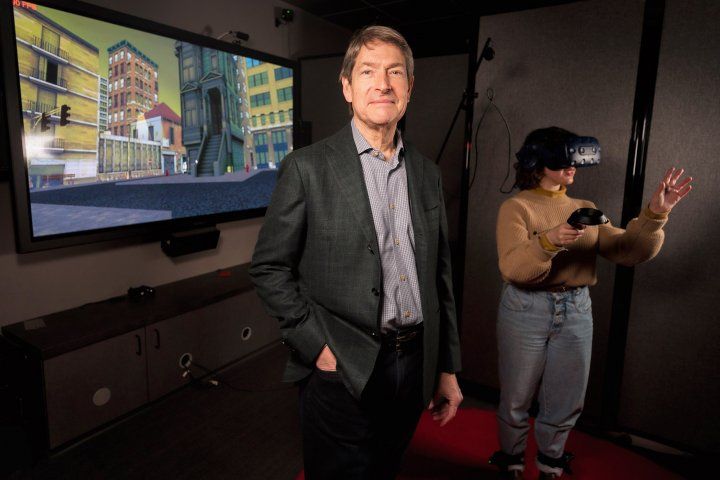A decline in memory is a harsh reality for some people as they age and may even mark the start of dementia, such as Alzheimer's disease. But new research suggests that time spent in virtual reality - through a video game - could help older adults restore their memory into better shape.
Scientists at UC San Francisco's Neuroscape brain research center have developed a first-of-its-kind virtual reality video game that can improve memory in healthy, older adults, according to a study published Jan. 28 in Scientific Reports.

Peter Wais (left), PhD, tested a special virtual reality program to see if it would improve memory in older adults. Photo by Maurice Ramirez
Eventually, researchers hope such games could serve as a digital intervention in older adults with "mild cognitive impairment," defined as a noticeable decline in memory and control of attention. According to the Alzheimer's Association, 15 percent to 20 percent of people age 65 or older have mild cognitive impairment. Many drugs have been tested, but none has shown a sustained benefit for long-term memory.
In the new, immersive game, called Labryinth-VR, players don a head-mounted virtual reality display and navigate through "neighborhoods" of increasing size and complete errands of increasing complexity as the game progresses through 42 levels. Importantly, players walk in place and move their bodies as they navigate the game, gaining physical exercise that can increase cerebral blood flow associated with improvement in general cognitive performance, the researchers said.
Researchers saw an improvement in an important type of long-term memory - high fidelity memory, the ability to tell apart new objects from very similar ones viewed before.
The study involved 48 cognitively average older adults, with a mean age of 69 years. Half of the participants played Labyrinth-VR, while the other half, the placebo group, played regular commercial video games not expected to have beneficial effects on memory. All participants played for 12 hours over four weeks.
Participants were scored on high fidelity memory using a test that assessed recollection of previously seen objects. Those who played Labyrinth significantly improved their high-fidelity memory relative to the placebo group. In fact, their high-fidelity memory was on par with that of players in their 20s, based on prior testing of various demographic groups.






